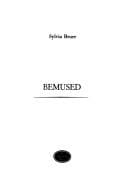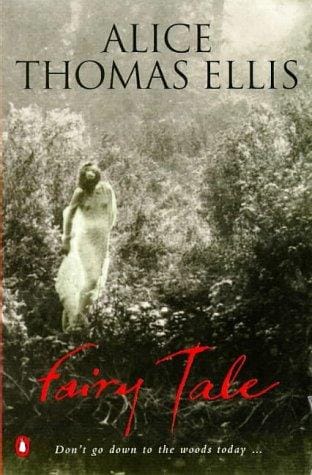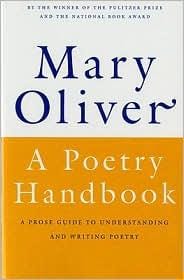Unpacking "Bemused": Meaning, Usage, and Examples
Learn what "bemused" really means, how it differs from "amused," and get tips and examples to use it accurately in writing and conversation.

What Does Bemused Mean?
"Bemused" is an adjective that describes a state of gentle puzzlement, mild confusion, or thoughtful absorption. When someone is bemused, they are not bewildered to the point of panic, nor are they entertained in the way we use the word "amused." Instead, a bemused person is quietly lost in thought, slightly uncertain about what is happening, or momentarily distracted by something intriguing. Understanding this subtle shade of meaning is essential because the word often appears in literature, business writing, and everyday conversation where precision matters.
Origins and Evolution of the Word
The earliest recorded use of "bemused" dates back to the 1730s. Linguists believe it was formed by combining the prefix "be-" (meaning "thoroughly" or "around") with the verb "muse," which itself means "to think" or "to ponder." Thus, the original sense of the term suggested being thoroughly absorbed in thought. Over time, the meaning shifted to emphasize the slightly confused feeling that can accompany deep contemplation. Today, dictionaries list "puzzled," "confused," and "bewildered" as acceptable synonyms, yet the word retains a softer, more reflective tone than stark bewilderment. This historical journey underscores why writers reach for "bemused" when they want a nuanced way to describe contemplative confusion.
Common Misconceptions
One of the biggest misconceptions about "bemused" is that it means the same thing as "amused." Because they rhyme and both end with "-mused," many people assume they are interchangeable. In reality, the two words live in different semantic neighborhoods. "Amused" conveys delight or entertainment, whereas "bemused" conveys perplexity. Using one in place of the other can significantly alter the tone of a sentence. For example, saying "She looked bemused by the comedian's joke" suggests she did not understand the humor, whereas "She looked amused by the comedian's joke" says she found it funny. Clearing up this misconception helps you communicate more clearly and avoid accidental irony.
How to Use Bemused Correctly
Proper usage of "bemused" hinges on matching the word to the desired tone. Reach for it when you need to describe a character, colleague, or customer who is scratching their head, not because they are angry or upset, but because they are thoughtfully confused. It pairs well with verbs like "appeared," "looked," "remained," and "stood"—all of which suggest a visible or lingering state rather than a fleeting action. Additionally, "bemused" often precedes prepositional phrases such as "by the question" or "at the sudden change," allowing you to identify the source of the confusion.
Using Bemused in Formal Writing
In academic or professional contexts, "bemused" can add subtlety to analytical writing. Suppose you are discussing a historical figure’s reaction to a new policy. Writing "The prime minister was bemused by the unexpected opposition" conveys gentle perplexity without implying panic or anger. Likewise, in business reports, "bemused" can describe stakeholders who are confused by complex data, signaling to readers that clarification is required.
Using Bemused in Everyday Conversation
When chatting with friends or posting on social media, "bemused" can replace more casual phrases like "kinda confused" or "not sure what to make of it." Saying "I’m bemused by the plot twist in that show" sounds concise and precise. Just remember that many listeners may still conflate the term with "amused," so context clues remain important.
Example Sentences with Bemused
1. The tourists stood bemused at the complicated subway map.
2. Her cat watched the spinning top with a bemused expression.
3. The professor grew bemused by the contradictory survey results.
4. He left the meeting slightly bemused, unsure of the next steps.
5. Children are often bemused by idiomatic expressions adults take for granted.
Synonyms and Antonyms
Close synonyms include "perplexed," "puzzled," "confounded," and "bewildered," though each carries a slightly stronger sense of confusion than "bemused." For softer alternatives, consider "mystified" or "stumped." Antonyms include "clear," "certain," and, of course, "amused." Recognizing these relationships lets you fine-tune the emotional temperature of your sentences.
Practical Tips to Remember
• Think "B for Bewildered"—both begin with the letter "B," helping you link bemused to confusion rather than entertainment.
• Pair it with visible states: "looked," "appeared," "stood," which naturally describe outward signs of inner puzzlement.
• Use context clues so readers immediately know you mean confusion, not laughter.
• Reserve "amused" for humor and "bemused" for puzzlement to keep your writing precise.
Conclusion
Mastering "bemused" enhances your verbal toolkit by giving you a word that captures the gray area between full comprehension and utter bewilderment. Whether you’re drafting a novel, composing an email, or reflecting in a journal, this nuanced adjective conveys thoughtful confusion with elegance. By remembering its origin, clearing up common misconceptions, and practicing correct usage, you’ll deploy "bemused" with confidence and clarity—leaving your audience informed, not perplexed.

